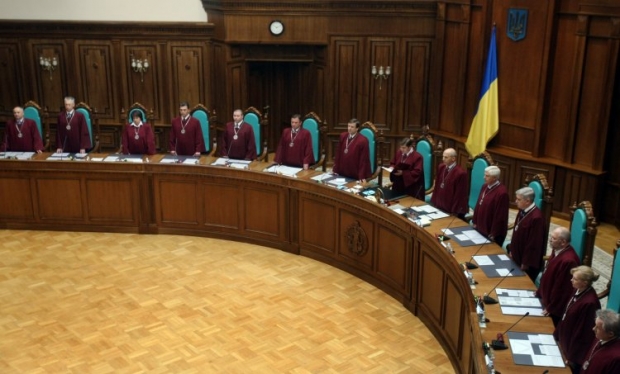
Need for change: How to reform Constitutional Court
The public associates judicial reform mostly with the courts of general jurisdiction. However, the Constitutional Court of Ukraine, whose role and influence on public policy are enormous, needs change as well
The discussion on the need to reform the judiciary has become more vocal recently. On Sunday, April 10, Prime Minister Arseniy Yatsenyuk, while announcing his resignation, mentioned that from now on, he sees judicial reform among other things broader than the competence of a prime minister. The next day, April 11, President’s Representative to the Verkhovna Rada Stepan Kubiv also spoke about this reform, emphasizing that the Head of State insisted on Rada’s faster approval of the judicial reform, as soon as the Parliament forms a new coalition and submits for the approval the candidate for a prime minister’s chair.
However, in the context of judicial reform, few of the top authorities mention the Constitutional Court of Ukraine (CCU). It is this court which is called to perform the most important task – to ensure the supremacy of the Constitution in Ukraine. However, as indicated by its rulings over the past years, it does not really succeed in this and therefore requires fundamental changes. We tried to find out what changes are preferable.
Old school work
According to the poll, conducted in December 2015 by the Democratic Initiatives foundation, only 1% of the population fully trusts the CCU. 38.1% do not trust it at all, while another 30.3% mostly don’t. This is not surprising given the fact that, for example, on September 30, 2010, this Court issued a decision declaring unconstitutional the Law On Amendments to the Constitution of Ukraine of December 8, 2004, based on a violation of the procedure for its consideration and approval. Due to this decision, the then authorities, de facto, restored the constitutional provisions of June 28, 1996. And this was one of the key instruments of usurpation of power by [the now ousted] President Viktor Yanukovych.
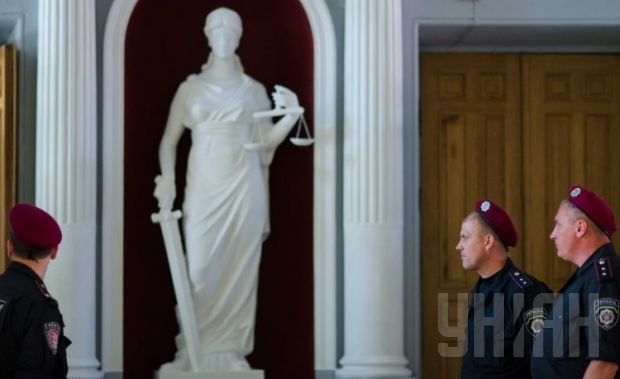
Another curious decision of the Constitutional Court was issued on March 18, 2016. It regarded the official interpretation of the provision of Article 155: "…at the next regular session of parliament." [Thus, the CCU ruled that completion of the process of adopting by the Verkhovna Rada of earlier proposed amendments to the Constitution can take place at any regular session of the Verkhovna Rada.]
Incidentally, it was the same panel of judges to consider this case as the one which on September 30, 2010, changed the Constitution of Ukraine in favor of the government at the time. Criminal investigation launched into that episode was never completed.
It should be reminded that in 2015, the General Prosecutor's Office found that on September 30, 2010, the judges of the CCU issued a deliberately unjust decision. According to the PGO, such actions resulted in grave consequences, such as changing the Constitution of Ukraine in an unconstitutional manner, that is, a return to the Constitution of Ukraine of 1996, by means of misappropriation of powers of the Verkhovna Rada. Six of these judges remain in office and continue their work as before, for the new President of Ukraine. The "fresh" decision issued this March proves the point.
All of this became possible because of impunity, according to MP, Deputy Speaker of Parliament Oksana Syroid. "We appeal to the PGO demanding to respond who of the CCU judges is subject of criminal proceedings. It’s so that we know and not hush down this issue," she said, adding that it should be now considered how to review the latest decision of the CCU.
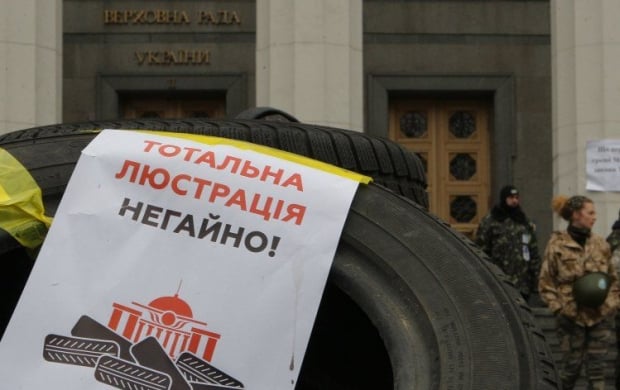
This opinion is shared by activists from the Public Lustration Committee NGO, who also demand that the law enforcers check into violations of laws by the Constitutional Court judges and bring them to administrative responsibility. The thing is that the CCU began its consideration of the submission on the constitutionality of the Law On Cleansing of Power." And, considering that this law also aims at sacking officials who contributed to usurpation of power by former president Viktor Yanukovych, one-third of the current composition of the CCU is in a conflict of interest in this regard, the activists say. Therefore, in their opinion, the judges cannot participate in the proceedings and must withdraw.
"The Constitutional Court, one-third of which is comprised of the same people who helped Yanukovych usurp power, is a threat not only to the lustration law, but potentially to all post-Maidan achievements, including electronic declaration of income and National Anti-Corruption Bureau. And the only reason why the judges are still not punished is the will of the current state leadership headed by President Poroshenko to keep the old system," said Oleksandr Drik, head of the Public Lustration Committee NGO.
The problem with HR
However, in addition to eliminating the consequences of the work of this Constitutional Court, its reform should be started as well. The next step will be adopting bill No.3524 On Amendments to the Constitution of Ukraine (on judiciary) of November 25, 2015. But will these constitutional changes be able to ensure the independence of the Constitutional Court? The experts are not too optimistic.
One of the authors of the Constitution of Ukraine Volodymyr Shapoval does not consider the bill proposed an effective mechanism for the election of Constitutional Court judges by Parliament, the President and the Congress of Judges of Ukraine. After all, the relations between these institutions of power have not changed, and neither have the popular attitude. "A current policy of recruitment to the CCU is a president’s preference of a personal nature. That’s why we have such result of their work," he said.
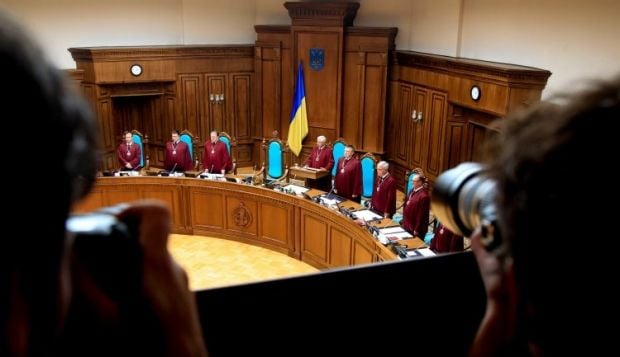
In turn, chairman of the Center for Political and Legal Reforms Ihor Koliushko notes that, in order to heal the situation, an effective mechanism for recruitment to the Constitutional Court should be first worked out. In his view, a special commission should recruit constitutional judges. This commission should consist of retired CCU judges with impeccable professional reputation. The original composition of such a commission should be formed by the Ukrainian president within 30 days from the date of entry into force of the mentioned law. And then the newly elected judges should elect their chairman. "This formula will solve the problem with personnel in the CCU,” says Ihor Koliushko. “As the current procedure of forming its composition, in which the selection of constitutional judges is performed by the parliament and the president, has not proved effective."
"Practice and activities of the Constitutional Court certify that its judges, most of them coming from the courts of general jurisdiction, find it methodologically difficult to work in the CCU. They continue to use the habit of applying law at their own discretion and look over their shoulders for hints from above. The experts from the Center for Political and Legal Reforms submitted this proposal to the Constitutional Commission on developing draft amendments to the Constitution (on judiciary), but then it somehow fell out from the draft. No one had heard from members of the Constitutional Commission why the proposal was not taken into account," said the expert.
However, an MP of several convocations, President of the Institute of Electoral Law, Yuriy Kliuchkovsky is convinced that the proposed mechanism can also be risky because it can create a closed corporation and a rapid degradation of the whole system. One of the authors of the Constitution of Ukraine, a lawyer with many years of experience in the European Court of Human Rights (ECHR) Volodymyr Butkevych, supports this idea. "If we continue to go on the path of formation of the Constitutional Court by a president, judges and Parliament, then nothing will change. After all, none of the three branches of government want to give up on their usual practice to have their confidants in the Constitutional Court, whom they can call in case of emergency or send their assistants for a meeting, " he said.
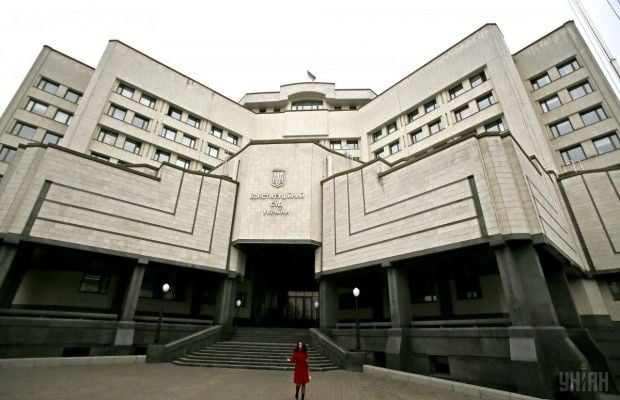
Therefore, the expert insists on the abolition of a norm denying CCU judges their right to be reelected after a certain period of working in the CCU. After all, after retiring in 49, the constitutional judges will look for a new job. Therefore, most of them, with the aim to secure their future, may begin to serve certain political forces and officials during their tenure at the CCU.
In turn, CCU Judge Ihor Slidenko, elected by the Rada in 2014, who had engaged in scientific research before that, believes that the problems with the performance of the constitutional judges appeared when majority of them was formed out of the judges of general jurisdiction courts. Because of this fact, the Constitutional Court has gained political pretext to its activities. To eradicate such praxis, he offers to introduce a quota of scientists from public constitutional law in the process of selecting constitutional judges. Of course, scientists don’t always boast impeccable professional reputation. As noted by Volodymyr Butkevych, many supporters of the previous government who are now beyond Ukraine’s borders and on a wanted list, are doctors and professors...
Nevertheless, experts believe that there is no need to be afraid of the CCU reform. There were times when the ECHR was also going through constant changes. That’s because its judges understand that the main thing is to improve their work. This experience should be also adopted by the CCU.
Lesia Shutko

